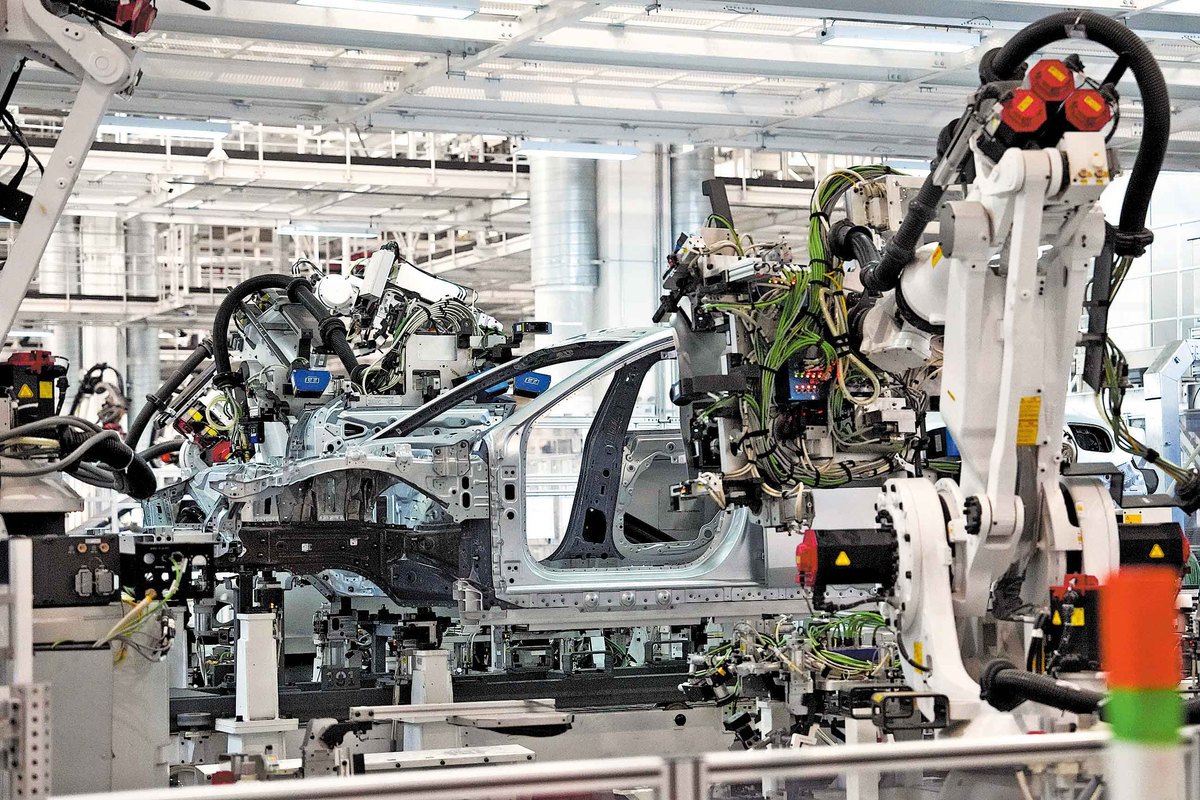未来汽车的超级大脑将来自中国 - 2025-07-14

A vehicle is assembled on an automated production line in Beijing.
China has made great strides in the automotive industry in recent years. The lithium-ion battery has its home and is developing its greatest advantages in China. Companies such as CATL, BYD, Gotion and Sunwoda have achieved leading positions in power batteries, partly because of innovations and continuous R&D in cells and packs, and partly because of scaling.
Moreover, China is by far the world's largest car market, especially electric vehicle (EV) market.
Tesla has become boring compared with BYD, XPeng, NIO and Xiaomi. The home of EVs is now China. Collaboration with car manufacturers and suppliers in the West is exciting. German car manufacturers such as BMW and Porsche have their competitive advantages in driving performance. And Mercedes-Benz is positioned as a luxury brand with a magic carpet feel, design, materials and driving characteristics.
But Mercedes-Benz and BMW are leveraging the extensive battery expertise and Chinese cost advantages through scale. BMW's new model generation, called the Neue Klasse, is sharpening its competitive edge with round cells. And the sixth-generation lithium-ion cells — called Gen6 — are built in battery factories run by CATL and EVE. The same applies to suppliers.
This is to say that collaboration between Chinese tech champions and German automakers with strong brands can become a win-win relationship.
China's "Go West" initiative promotes mutual benefit and inclusive growth. As the industry expands rapidly, maintaining fair and healthy competition is essential. Companies should balance scale with brand value, ensuring pricing strategies that reflect quality and support long-term consumer trust.
This brings us to the second important characteristic of the car of tomorrow. First, the car of the future will be a zero-emissions vehicle, that is, an electric vehicle. Second, it will be an intelligent vehicle — intelligence here refers to two areas: automated driving, with fully autonomous driving at its peak; and a "smart cockpit", that is, the ability of drivers and passengers to engage in meaningful, intelligent, conversations while driving. Head-up displays, voice control, navigation on autopilot and other features, as well as a relaxed, quiet and high-quality design-driven interior atmosphere will characterize the car of tomorrow.
The focus is on a car's ability to sense its environment (through sensors such as LiDAR), and the car's brain (semiconductors that transform the sensor information into a complete picture). The car of tomorrow will be capable, like humans or should we say better than humans, of understanding traffic conditions and reacting correctly. This correct reaction saves lives.
Two months ago, I was in Wuhan, Hubei province, and rode a Baidu "Apollo Robotaxi" with my colleagues. It was like being in another world. It's the future; and today, Baidu Apollo, and Pony.ai have impressive things to offer. Making the robotaxi system marketable requires large volumes and scale. And that's exactly what you find in China's major cities such as Beijing, Shanghai, Shenzhen and Wuhan.
The large market is for autonomous commercial vehicles, but also for defense applications. Scaling opportunities, that is, marketing opportunities, are an important foundation for a viable business model. Google subsidiary Waymo hasn't found that in the United States yet. Even less likely is Tesla founder Elon Musk, who seems more like a dreamer when it comes to robotaxis, to achieve it. As such, Baidu and Pony.ai have a great opportunity to achieve this with Chinese scaling.
All of this shows that China and "China speed" can play an important role in the future car brain — semiconductors. A few months ago, I visited Huawei headquarters in Shenzhen and was impressed by what it can do. Huawei's digital ecosystem spans a driver's entire living space with systems like "Harmony".
Moreover, China has developed into a technology-driven economy, and companies such as Huawei, Horizon Robotics, Black Sesame, RoboSense and Tencent show China is home to world champion companies in fields such as lithium-ion batteries. NVIDIA, Qualcomm, Samsung and the Taiwan Semiconductor Manufacturing Company still have a lead in certain semiconductor sectors. But the gap is shrinking — not only in semiconductors which will shape the car of the future, but also in sensors. China is now the market leader in LiDAR sensors. Without data, and that's what sensors capture, a chip can't do anything.
China is on its way to developing an "intelligent vehicle" — just as it did with batteries — with chips and sensors. The collaboration between the German auto industry and Chinese enterprises would be win-win. The US has become highly unpredictable, even dangerous. A narcissistic US administration poses a significant risk to Europe.
The car of the future and its masterminds both will come from China. That would provide a good opportunity for the European Union to become more independent, minimize political risks, and engage in a win-win game for the car of the future.
The author is Ferdinand Dudenhöffer, director of the Center for Automotive Research in Bochum, Germany.
Source:China Daily
